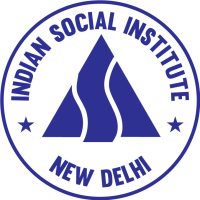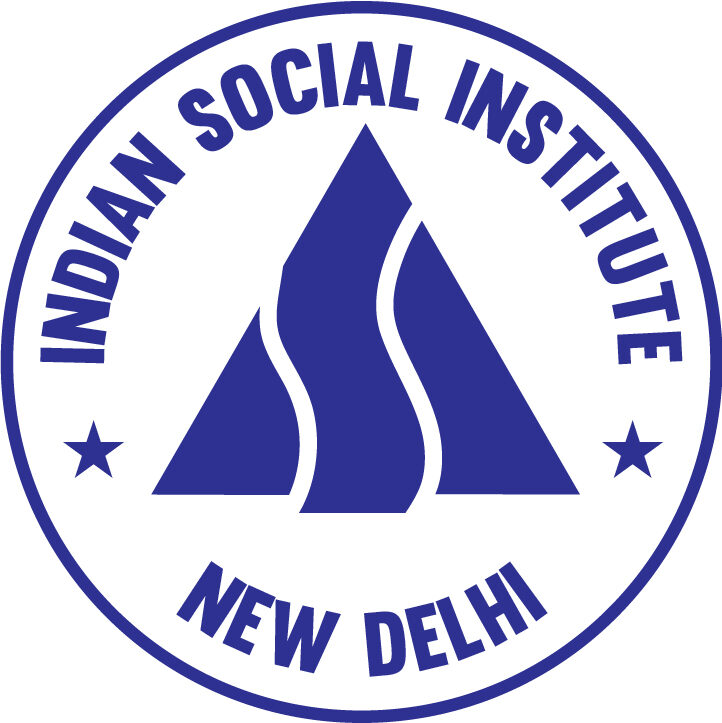Social Action

(A Quarterly Review of Social Trends) UGC-CARE approved Social Science Journal
Social Action has been published continuously since 1951 by the Indian Social Institute. This Journal has been capturing the social dimension of independent India. It is now published by the Social Action Trust. The Journal attempts to reach activists in the field with committed intellectual and theoretical concerns, as well as intellectuals and academics seriously committed to action in the field. This is a delicate balance to maintain and the editorial team strives to keep the Journal relevant and informative to both sets of readers.
A must for researchers and to all serious citizens who have a social concern; Meaningful and thought-provoking BOOK REVIEWS provide you with an insight into the treasures the books hold within.
Articles are well researched. A boon indeed for your questioning mind. It definitely will keep you one step ahead of the topsy-turvy social trends in our country. Social Action is published on the 15th of January, April, July and October. Each issue is devoted to a chosen theme, significant and current at the time, and announced in advance. Articles of 4,500 -5,000 words are invited on these announced themes. The Journal also carries non-thematic articles, reports from the field and current comment. The Book Review section is a regular feature of the Journal.
Articles in Social Action are indexed in the Indian Council of Social Science Research (ICSSR), Research Abstracts, Sociology of Education Abstracts, Book Review Index, and Review of Population Reviews. A micro-film edition is available from University Microfilms International, Ann Arbor, Michigan 48106 USA. The material printed in this Journal is copyright and should not be reproduced without the written permission of the Editor.
EDITORIAL BOARD
Editorial Board of Social Action does not necessarily endorse the views of its contributors.
Current Editorial Board members :
Prof. Surinder Singh Jodhka, Jawaharlal Nehru University, New Delhi 110 067
Prof. Virginius Xaxa, Delhi University, Delhi – 110 007
Prof. Susan Visvanathan, Jawaharlal Nehru University, New Delhi 110 067
Prof. Arvinder A. Ansari, Jamia Millia Islamia, New Delhi-110025
Prof. Babu P. Remesh, Ambedkar University Delhi, Delhi-110 006
The Editorial Team
Editor: Dr. Denzil Fernandes
Secretarial Assistance: Satya Srinivasan
Layouts & Design: Ruben Minj
Themes for forthcoming issues
Democracy: Civic Literacy and Political Participation in India
JAN-FEB-MARCH, 2024
(Last date to receive articles: 15 November 2023)
Changing Caste Equations and Assertion of Other Communities
APRIL-MAY-JUNE, 2024
(Last date to receive articles: 15 February 2024)
Intolerance and Shrinking Space of Civil Society
JULY-AUG-SEPT, 2024
(Last date to receive articles: 15 May 2024)
Labour Codes: Challenges and Prospects
OCT-NOV-DEC, 2024
(Last date to receive articles: 15 August 2024)
Women at Work: Paid and Unpaid
JAN-FEB-MAR, 2025
(Last date to receive articles: 15 November 2024)
Religious Minorities in India
APR-MAY-JUN, 2025
(Last date to receive articles: 15 February 2025)
GUIDELINES TO AUTHORS
1. All manuscripts should be articulated in the following form:
- Abstract should contain a summary of the paper in single-spacing, not exceeding 150 words.
- Keywords, Introduction, Objectives and Research Methodology, Findings, Discussion and Analysis, Conclusion, Recommendations and APA style to be used for References.
- The font size should be typed in 12 Times New Roman, in single spacing, with margins of at least one inch on all sides.
- Illustrations, pictures and graphs, should be supplied in the highest quality and in an electronic format that helps us to publish your article in the best way possible.
- Figures/charts and tables created in MS Word should be included in the main text.
- Names of respondents should be avoided or their names should be changed while presenting their testimonies.
- Articles should reach the Editor at least two months before the month of publication.
- Articles should be 4000-5000 words and should be submitted through the email of socialaction@isidelhi.org.in
2. Styles of writing bibliography to be followed strictly by the authors:
BOOKS:
Bailey, F.G. (1960) Tribe, Caste and Nation. Bombay: Oxford University Press.
Peet, R., & Hartwick, E. (2009).Theories of Development: Contentions, Arguments, Alternatives (2nd ed.). London: The Guilford Press.
Edited Books:
Munda, R.D., & Mullick, S.B. (Eds.). (2003). Jharkhand Movement. Indigenous Peoples’ Struggle for Autonomy in India. Copenhagen: International Work Group for Indigenous Affairs.
Barton, L. and Oliver, M. (1992). Special Needs: Personal Trouble or Public Issues?, In Madeleine Arnot and Len Barton (Eds.), Voicing Concerns: Sociological Prospects on Contemporary Education Reforms, (Chapter 4), Wallingford: Triangle Books.
Articles from Journal:
Gray, L (2018). Disability, Social Policy and Inclusiveness: The Missing Links. Journal of Social Inclusion Studies, 4(2): 301-324.
D’Souza, R. (2004). Rigidity and the Affliction of Capitalist Property: Colonial Land Revenue And The Recasting Of Nature. Studies in History, 20 (2), 237-272. doi:10.1177/025764300402000204
Website - Magazine, Journal or Newspaper Article:
Mohanty, B. K. (2016, January 8). Farmland-lease Nod on Table. The Telegraph. Retrieved from http://www.telegraphindia.com/1160108/jsp/nation/story_62759.jsp#.VpN2du Z8tM4
Technical and Research Report, e.g. Government Reports
Yogi, R. K., Bhattacharya, A., Jaiswal, A. K., & Kumar, A. (2015). Lac, Plant Resins and Gums Statistics 2014: At a Glance (Bulletin (Technical) No. 07/2015). Ranchi, Jharkhand: ICAR-Indian Institute of Natural Resins and Gums. Retrieved from http://ilri.ernet.in/~iinrg/Lac%20Statistics.pdf
Thomson, R.G. (2001). Re-shaping, Re-thinking, Re-defining: Feminist Disability Studies. Barbara Waxman Fiduccia Papers on Women and Girls with Disabilities. Washington: Centre for Women Policy Studies. Retrieved from https://www.womenenabled.org/pdfs
Internet Web Page (html)
Templeton, S. (2019, June 4). Why Your Reusable Shopping Bag isn’t Getter than a Single-use Plastic One. Newshub. Retrieved from https://www.newshub.co.nz/home/lifestyle/2019/06/why-your-reusableshopping-bag-isn-t-better-than-a-single-use-plastic-one.html
Ministry of Education. (n.d.). Innovative Learning Environments. TKI. Retrieved from http://elearning.tki.org.nz/Teaching/Innovative-learning-environments
Ministry of Health. (2015). Eating and Activity Guidelines for New Zealand Adults. Retrieved from https://www.health.govt.nz/system/files/documents/publications/eating-activityguidelines-for-new-zealand-adults-oct15_0.pdf
3. Quotations should be placed in double quotation marks, reserving single quotation marks for a quote within a quote. Long quotes (i.e. 45 words or more) should be indented to set them apart from the text. No quote marks are required around indented quotes.
4. British spellings to be used rather than American. Thus, ‘programme’ not ‘program’.
5. Headings within an article should be short and limited to two or, at most three levels.
6. Figures between one to nine could be spelt out, 10 and above may remain in figures. However, exact measurements and percentages are always expressed in figures - for example, ‘3 per cent’; ‘6 km’.
7. Authors are suggested to check the APA style following the link: https://www.ltu.se/cms_fs/1.78649!/file/APA_6th_ed.pdf
8. BOOK REVIEWS
The title of the book review should include the following details:
Title of the Book (italicized), Names of the author (s)/editor, (s) Place of publication: name of publisher (separated by a colon), year of publication, number of pages and the price of the book.
For example:
Fractured Tales: Invisibles in Indian Democracy, by Badri Narayan, New Delhi: Oxford University Press, 2016, ISBN: 0-19-946628-9 pp. 186, Rs. 650.
Social Policy and Social Change: Toward the Creation of Social and Economic Justice (2nd Edition), by Jillian A. Jimenez, Eileen Mayers Pasztor, Ruth M. Chambers, and Cheryl Pearlman Fujii: Thousand Oaks, CA: Sage Publications, 2015, ISBN: 1452268339, 520 pp. $69.88.
Book Reviews should be typed in single space and should not exceed 1000 words.
SOCIAL ACTION is published on the 15th of January, April, July, and October.
Submit your papers at:
SOCIAL ACTION
10, Institutional Area
Lodhi Road
New Delhi-110 003
E-Mail : socialaction@isidelhi.org.in
| Subscription Rates: Social Action - Quarterly Journal | ||||
|---|---|---|---|---|
| Single Copy | 1 Year | 2 Years | 3 Years | |
| By Registered Post | 170 | 670 | 1340 | 2000 |

